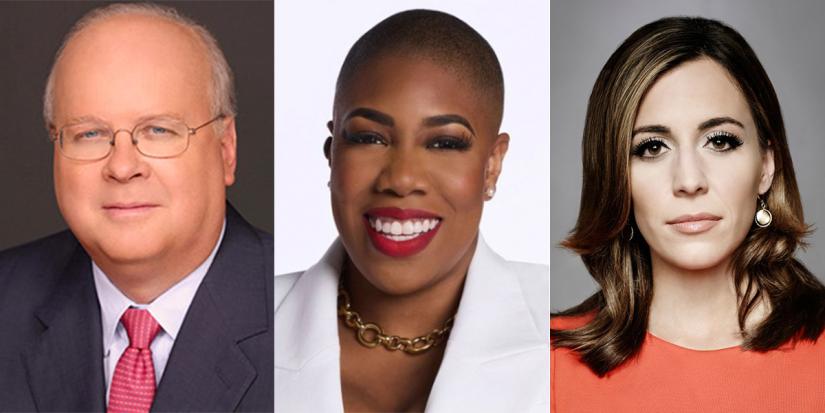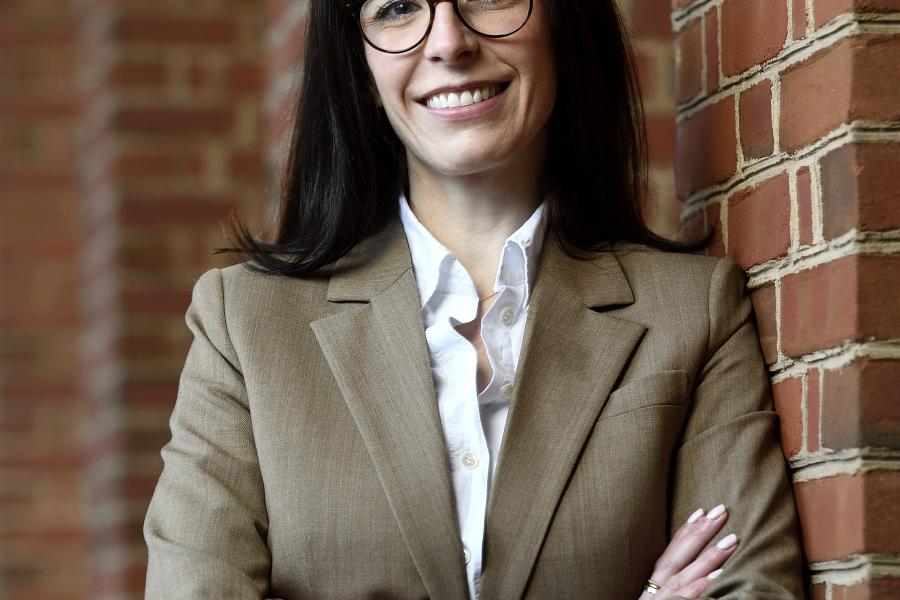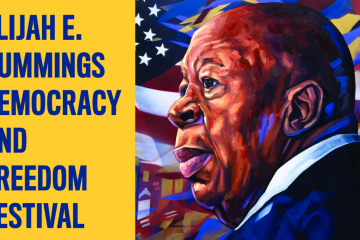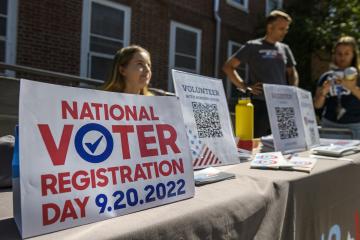- Name
- Johns Hopkins Media Relations
- jhunews@jhu.edu
- Office phone
- 443-997-9009
For a debate to be truly productive, there must be genuine tension, an undercurrent of passionate disagreement, says Louise Flavahan, director of the university debate initiative at Johns Hopkins.
"Our goal is to turn that tension into dialogue. How can we foster that discussion across differences, and not shy away from it?" Flavahan says of the debate program, hosted by the SNF Agora Institute. "Too often in today's climate we see people skirt around issues that are difficult to talk about because of charged emotions."
The program's first marquee debate, on Wednesday, Feb. 8, will dive into the issue of states' control over voting rights and what role Congress should play. For that event—part of the Elijah E. Cummings Democracy and Freedom Festival—SNF Agora has invited two strategists on opposite sides of the political spectrum, Republican consultant Karl Rove and Democratic strategist Symone D. Sanders-Townsend, with NBC correspondent and JHU alum Hallie Jackson moderating. The debate will be held at the Reginald F. Lewis Museum.
General registration is available online. Students are invited to register via a separate form and can take advantage of a free shuttle to and from the museum.
"It's a controversial topic, but we're not going for mudslinging. This is not Sunday morning TV," Flavahan stresses. "We want to host rigorous academic debates where people respect each other and find points of overlap."
Flavahan has worked around contentious issues for her most of her career, most recently as top policy adviser to former U.S. Sen. Barbara A. Mikulski and previously as director of the Forum on Global Violence Prevention at the National Academies of Sciences, Engineering, and Medicine.
"In my work with gun violence prevention, I've lectured in high schools, walking into rooms where young people already have very strong opinions," she says. "But they can't always articulate why they're so riled up. What I've done is to explain the issues, explain the data and the context, and you can see lightbulbs going off when they realize exactly why they're so passionate—if it's an injustice they can point to, for example."
For the Hopkins debate initiative, Flavahan wants students to take center stage. Since she was appointed the program's director in August, she has assembled a student advisory committee and coordinated with a range of groups on campus, including the Foreign Affairs Symposium and International Studies Leadership Council.

Image caption: Karl Rove, Symone Sanders-Townsend, and Hallie Jackson
Each year, the debate initiative will host two marquee debates, like the upcoming event with Rove and Sanders-Townsend, to draw an audience from the JHU community and beyond. In addition, each semester there will be multiple other debate-focused events planned in partnership with students and student groups that will have a more targeted campus audience.
The program will serve as a central resource for Hopkins students—as well as faculty members and staff—to plan and orchestrate their own debates, whether in classrooms or on larger platforms. "We want to be the facilitator," she says. "We want people across Hopkins reaching out to us for help on how to organize debates and approach conversations."
The initiative, which JHU President Ron Daniels announced in March 2022, hosted its first debate last fall, featuring two legal experts discussing Donald Trump's accountability in the Jan. 6, 2021, insurrection. Two more events are planned for this spring:
- March 16 : A debate on the urgency of the climate change refugee situation, featuring Amali Tower, founder of Climate Refugees, and Patrick Brown, co-director of the climate and energy team at The Breakthrough Institute.
- April 6 : A debate on Supreme Court reform, featuring Jeffrey Rosen, president of the National Constitution Center, and lawyer and academic Neal Katyal.
The Hopkins program is loosely grounded in the policy debate format, according to Flavahan, with each speaker making an opening statement, then offering rebuttals to each other, followed by a moderated Q&A and closing statements.
Though politics inevitably bleed into almost every topic, Flavahan says, she wants to reach beyond that focus. She's interested in working with Film and Media Studies, for example, to pair film screenings and debates, or with scholars on topics like bioethics or artificial intelligence.
The purpose runs deeper than organizing successful debates, Flavahan says. "To me, the win is not necessarily if students leave knowing how to get up on stage and do a formal debate," she says. "The win for me is if they go forward to a dinner or date or family Thanksgiving or a job interview, and they're able to have productive conversations where they can defend their positions in meaningful ways."
For information on upcoming the debate initiative's upcoming events, subscribe to the SNF Agora Institute newsletter.
Posted in University News, Student Life, Politics+Society
Tagged voting, snf agora institute, democracy











